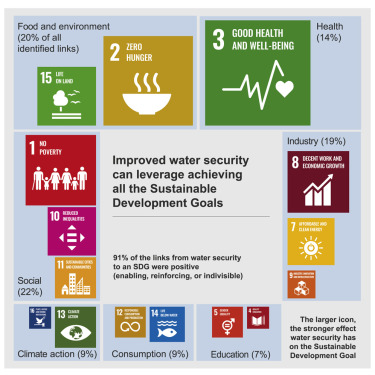Elsevier, Cancer Epidemiology, Volume 70, February 2021
Background: The incidence of metastatic spine disease (MSD) is increasing among cancer patients. Given the poor outcomes and high rates of morbidity associated with MSD, it is important to determine demographic factors that could impact interventions and outcomes for this patient population. The objectives of this study were to compare in-hospital mortality and complication rates, clinical presentation, and interventions between female and male patients diagnosed with MSD.
Elsevier, Cell, Volume 184, 4 February 2021
Our nationwide network of BME women faculty collectively argue that racial funding disparity by the National Institutes of Health (NIH) remains the most insidious barrier to success of Black faculty in our profession. We thus refocus attention on this critical barrier and suggest solutions on how it can be dismantled.
Elsevier,
The Lancet Global Health, Volume 9, February 2021
This study supports SDG 3 and 10 by reporting that Māori and Pacific people with type 2 diabetes have consistently poorer health outcomes than European patients, indicating the need for specific policies and interventions to better manage type 2 diabetes in these subpopulations.
Elsevier, The Lancet Gastroenterology and Hepatology, Volume 6, February 2021
Background: In 2016, of the estimated 257 million people living with chronic hepatitis B virus (HBV) infection worldwide, only a small proportion was diagnosed and treated. The insufficiency of information on the proportion of people infected with HBV who are eligible for treatment limits the interpretation of global treatment coverage. We aimed to estimate the proportion of people with chronic HBV infection who were eligible for antiviral treatment worldwide, based on the WHO 2015 guidelines.
Elsevier, Antiviral Research, Volume 186, February 2021
Hepatitis B virus (HBV) poses a major global health burden with 260 million people being chronically infected and 890,000 dying annually from complications in the course of the infection. HBV is a small enveloped virus with a reverse-transcribed DNA genome that infects hepatocytes and can cause acute and chronic infections of the liver. HBV is endemic in humans and apes representing the prototype member of the viral family Hepadnaviridae and can be divided into 10 genotypes.
Elsevier,
EClinicalMedicine, Volume 32, February 2021
A Research Paper on obesity, in the context of SDGs 3, 9, and 11, focusing specifically on the role of multi-level and multi-component interventions addressing healthy nutrition, physical activity, and education to mitigate the rising epidemic.
Elsevier, The Lancet Global Health, Volume 9, February 2021
An Article in support of SDG 3, showing that the age-adjusted prevalence of blindness has reduced over the past three decades, yet due to population growth, progress is not keeping pace with needs and vision impairment remains an urgent and increasingly important public health priority.

